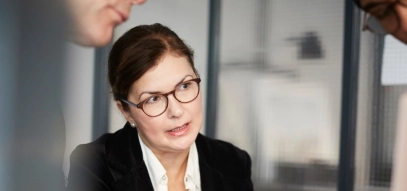Irish business owners have never had so much choice when it comes to raising capital for the next part of their growth journey or indeed for exiting the business. A huge number of private equity and venture funds, both domestic and international, offering structures and products across the capital spectrum, have been increasing their activity in the Irish market in recent years.
These funds have been drawn to a growth story based on sound fundamentals such as a relatively buoyant economy, a highly educated workforce that is driving innovation and entrepreneurship, and a proactive approach to internationalisation due to the small size of the domestic market, proximity to the UK, access to the European Single Market and a tradition of US expansion. Indeed, it is widely accepted that Irish companies tend to become exporters sooner than many of their overseas counterparts.
Institutional investors continue to invest in Irish funds attracted by recent Irish private equity success stories. One of the interesting features of the Irish market at present is the maturing of the native private equity sector. Funds such as Cardinal, MMl, Melior, Renatus, BGF, Development Capital, Erisbeg and Causeway have been exiting investments made over the last few years through sales to other private equity houses and trade sales to international buyers.
By and large, these investments have proved highly successful for both the private equity funds and the companies involved. The capital injection and expertise brought by the funds have driven strong growth. Business owners have benefited from greatly enhanced valuations of their remaining equity in the business, management teams have benefited from the incentive schemes put in place, and the funds have seen a stellar return on their investment.
These positive experiences have brought about a profound change in the landscape for investment in growth-oriented Irish companies. At one point Irish entrepreneurs and business owners were resistant to surrendering equity in return for capital investment in the company, but this is now seen as a normal part of the growth journey.
These funds provide ambitious owners with the capital needed for long-term growth, enabling them to pursue market opportunities through organic expansion or strategic acquisitions while mitigating personal risk. They also offer flexibility and opportunities for realising value beyond traditional methods such as trade sales or management buyouts, especially if owners aren’t intent on passing the business onto family members.
Recent data released by the Irish Venture Capital Association (IVCA) VenturePulse quarterly reports revealed that 2023 was a year of ups and downs for investment into the Irish SME market. While it was a positive year for start-ups looking to raise less than €5m, there was a marked drop in funding for firms seeking more significant amounts. Deals in the €5-€10m range fell by 26% in 2023 and more than halved in the fourth quarter. These statistics highlight the challenge businesses can face to secure funding. Ensuring they position themselves to utilise the domestic and international private equity market will be important.
If considering taking on investment, then preparation and choosing the right funding partner is essential.
Business owners must ensure they prepare for the scrutiny that private equity investors will bring to their operating model. In most instances, investors will be backing a team, so strong organisational structures and high-calibre management are essential. If you don’t already have a strong strategic finance function with an integrated approach to managing performance and budgeting, you should consider putting one in place.
Given that private equity investors focus on eventual exits, the business should have a robust plan with a well-defined strategy and commercial opportunity. It should outline a pathway to an attractive return on investment and demonstrate credibility.
Finally, choosing the right partners is paramount. While private equity funds share a focus on ROI, differences exist in their approach and track record. It would be important to assess their mode of operation – some will seek to play a very active hands-on role in the running of a business, and this may not sit well with either the current owner or with members of the management team. Ask for references and speak with other founders who have worked with them.
It would be important to establish an alignment with a potential private equity partner's view of the business and evaluate their ability to support the agreed growth plan. Moreover, personal chemistry and fit are significant factors given that you will work closely with them over the next few years.
Mazars is hosting the inaugural Irish Investor Awards on 17 May 2024 in the Round Room at the Mansion House. The 2024 Irish Investor Awards recognise and celebrate the commitment and innovation demonstrated by individuals and organisations in the Irish private equity and venture capital industry.
This article appeared in the Sunday Independent 17 March 2024.










